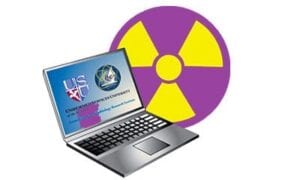The Armed Forces Radiobiology Research Institute (AFRRI) carries on a robust program of research on the biological and health effects of ionizing radiation exposure, but it is not substantively advancing research on health risks arising from exposure to low-level radiation, says a new report from the Institute of Medicine (IOM).
Although much is known about the health effects of high-dose radiation exposure, the health risks from low-dose radiation exposure are uncertain. This uncertainty has significant implications for public health decision making, particularly in the wake of the 2011 Fukushima nuclear accident.
The primary known health concerns for low-dose radiation exposure are increased risk of cancer, cardiovascular effects, and cataracts. Other problems may be present at lower doses but masked by confounding factors.
Radiobiology, the study of the effects of ionizing radiation on living things, is a diverse field that encompasses basic research, medicine, and public health. Although it is difficult to make a precise estimate of the future need for radiobiology researchers, certain trends—including the use of radiation for diagnostic procedures, the emergence of new forms of radiation therapy, and a resurgence of interest in nuclear energy—suggest that demand for them is likely to continue and may increase.
Although few data specific to the radiobiology workforce exist, available information suggests that the number of professionals leaving the radiobiological field through retirement and attrition exceeds the number entering and that this trend will continue. Although it does not appear that there is currently an acute shortage of researchers in radiobiology and related disciplines, it is reasonable to conclude that the supply of professionals may not meet the demand in the coming years.
Established in 1961, AFRRI is a Department of Defense (DoD) support agency focused on the prevention, assessment, and treatment of injuries from ionizing radiation exposure through research to better understand health effects. The institute also provides education to inform medical and emergency response to radiation exposure incidents. There is no other DoD-level organization with such a comprehensive and broad-scoped mission in radiological health and protection.
AFRRI’s programs and outreach activities provide the nation with important fundamental research, basic knowledge, practical applications, tools, and guidance associated with radiobiology and related matters essential to the operational and medical support of DoD and the military services as well as civilian and emergency responders. The institute’s unique infrastructure, which would be difficult to reproduce elsewhere, positions it to contribute significantly to research on the health effects of low-level ionizing radiation.
AFRRI’s work has historically focused on the study of higher-dose exposure, consistent with military concerns about response to nuclear warfare. In more recent times, it has conducted some research on lower-dose exposures, and other of its existing initiatives either have low-dose applications or can be extended in that area.
The report states that AFRRI has opportunities to contribute to the understanding of human health risks from exposures to low-dose ionizing radiation through additional or expanded work in the following areas:
- Development and evaluation of field radiation instrumentation
- Support of radiation epidemiology and risk research
- Training of radiation research and response professionals.
- Facilitation of low-dose research by investigators outside of AFRRI
- Low-dose nuclear and radiological emergency response
- Treatment and management of psychological injuries after a nuclear or radiological event
The report was commissioned by the Uniformed Services University of the Health Sciences, AFRRI’s parent organization in order to examine workforce projections and needs, and identify opportunities for AFRRI to contribute to the field of low-level ionizing radiation research.
Read the report at the National Academies Press: Research on Health Effects of Low-Level Ionizing Radiation Exposure: Opportunities for the Armed Forces Radiobiology Research Institute.



